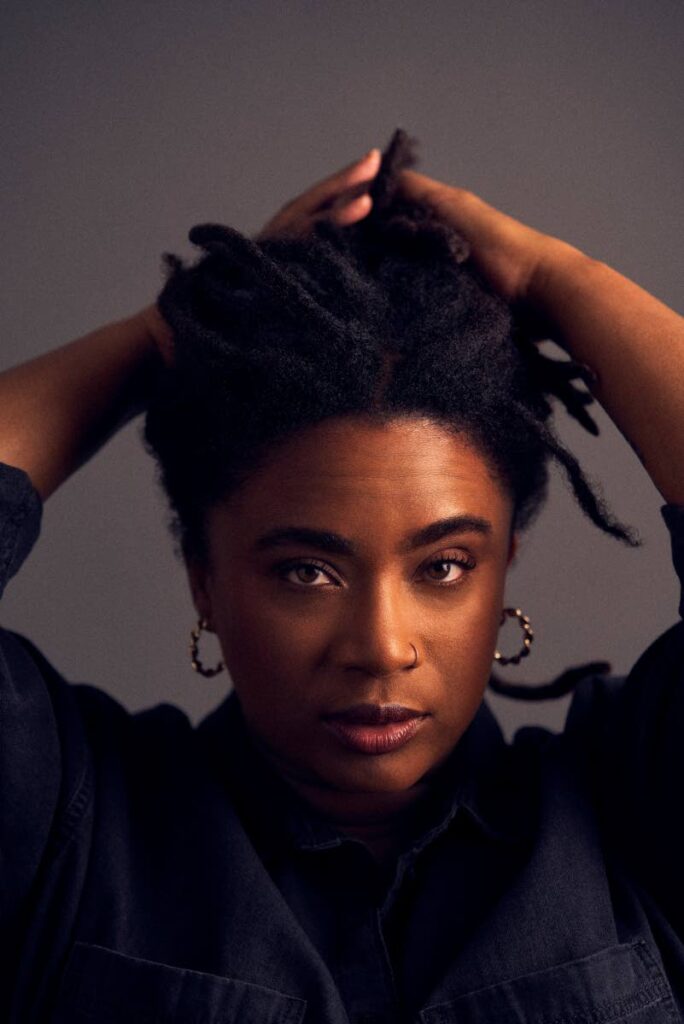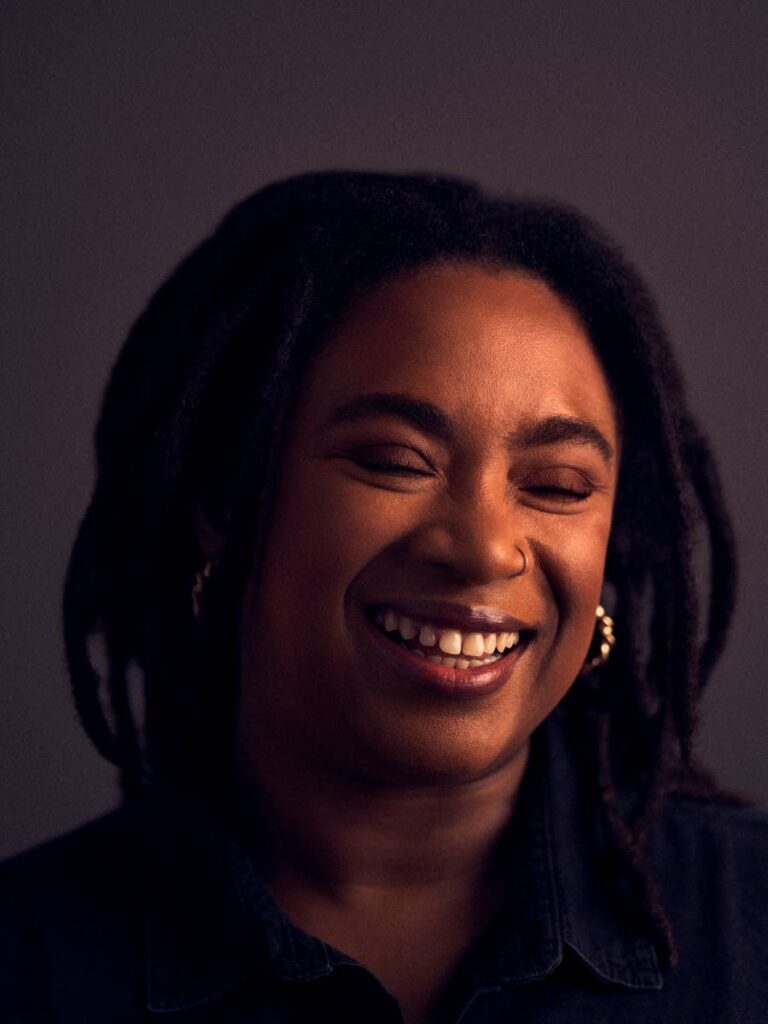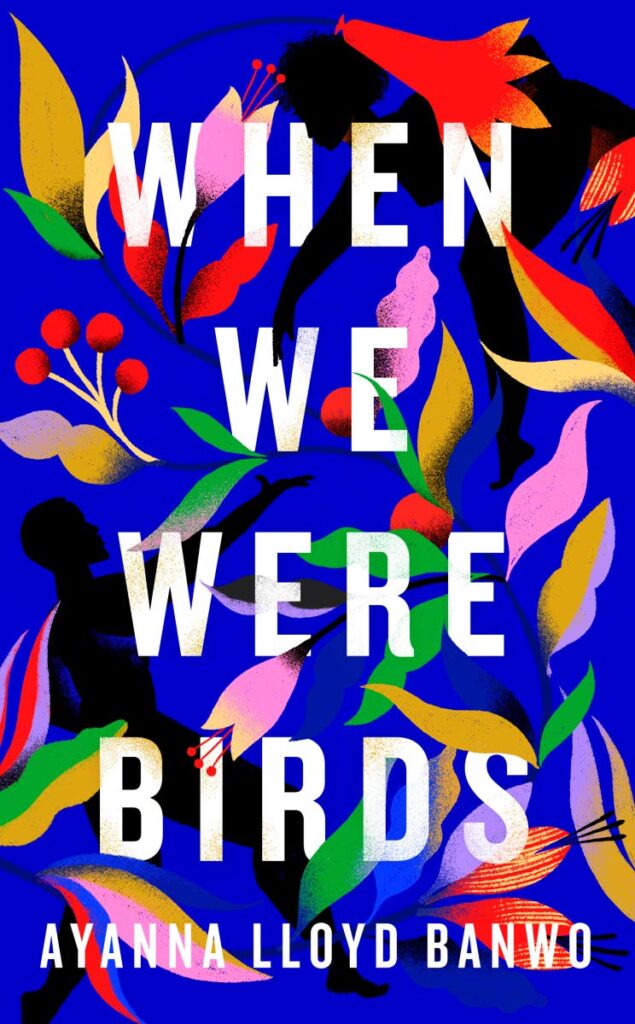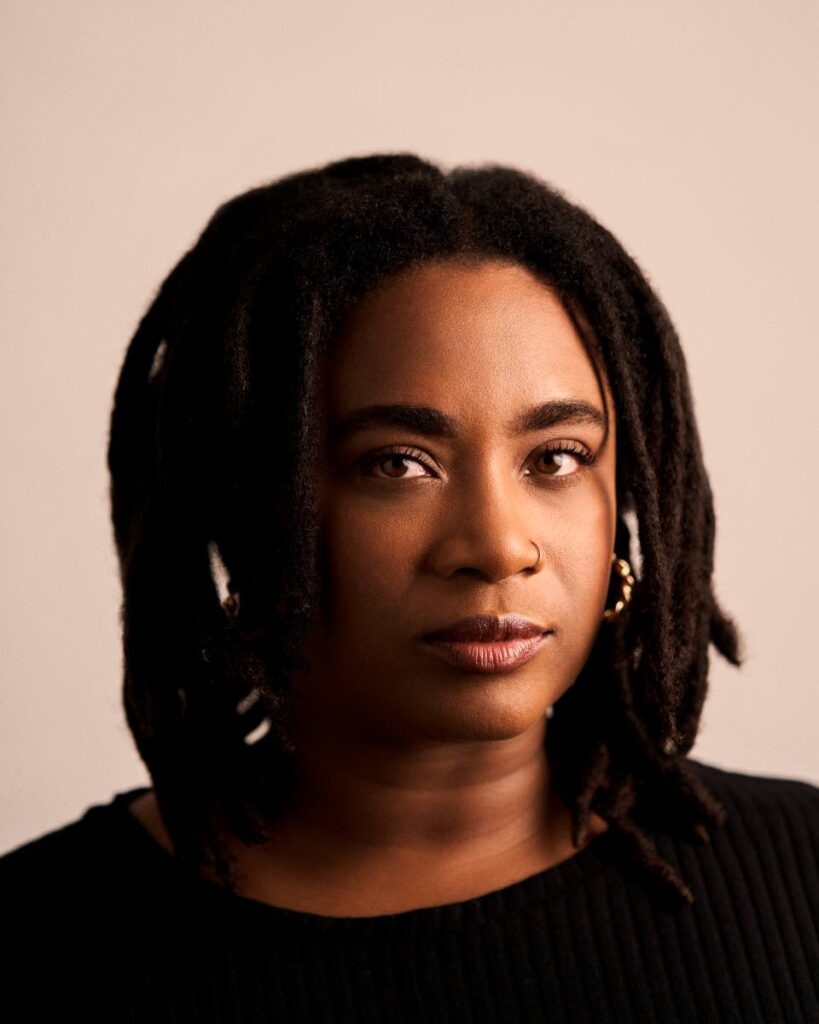Ayanna Lloyd Banwo turns to ancestral traditions in debut novel When We Were Birds

When We Were Birds is a combination of a love story, a ghost story and a crime story set in a fictional version of Trinidad and Tobago.
Its author, Trinidadian Ayanna Lloyd Banwo, has appeared on the cover of the Observer as one of its ten best debut novelists of 2022, and the book was named the Most Anticipated Book of 2022 by BuzzFeed and Essence Magazine.
The Observer said, “It announces an important new voice in fiction, at once grounded and mythic in its scope and carried by an incantatory prose style that recalls Arundhati Roy’s hugely impactful debut, The God of Small Things (1997), which Lloyd Banwo cites as a major influence.”
Based in London, Lloyd Banwo, 41, told WMN the interest in her debut novel has been both surprising and gratifying, since one never knows how people would respond to their work.

“The only thing you can do is focus on the work you want to do and hope you get enough opportunities to continue to do it. Because it’s not about one book. The hope is to have a long career writing and being able to tell the kind of stories I want to tell.”
So she hopes readers will like her future books and that they live up to the hype.
“All of this is nice, all of this is lovely, but at the end of the day, the process is still the same. Being on the cover of the Observer doesn’t make it any easier. I still have to do the same thing I did three or four years ago.
"So I try not to think about it too much. I try to stay grounded and focused.”
When We Were Birds is the story of Darwin and Yejide, two people from different backgrounds who find each other in an ancient cemetery and fall in love.
Darwin is a down-on-his-luck gravedigger who recently arrived in the city of Port Angeles. He was raised as a Rastafari and never dealt with death, as, to him, death was not something to dwell on, but part of life. Meanwhile, Yejide’s mother is dying and is leaving behind a legacy that now passes to Yejide – the power to talk to the dead.
Both trouble and destiny await them.
“At its core it’s a story about grief and the different traditions people have dealing with death. It’s a story of loving, having the power to heal and to give redemption in the light of that grief.”
Lloyd Banwo describes her work as magical realism as opposed to the high fantasy of books like the Lord of the Rings series.
“Think about how we live in Trinidad. We are superstitious people. We believe in signs and your granny would tell you not to pick fruit from a certain tree after a certain time.

“And while we are very modern now and these things seem silly, they are part of our ancestral traditions that make us who we are. So what someone else might call supernatural, to us it’s just kind of natural, part of the fabric of the society.
“I’ve always been interested and felt very emotionally connected to that side of how we as Caribbean people see the world.”
She said even if some people are not believers of certain religions and may look down on those who do, they respect those beliefs and stay away from it because they believe on some level.
In When We Were Birds, she delves into the supernatural and the different traditions people of African descent have around death, mourning, and ancestral connection.
She explained that at some point over the years she became interested in cemeteries, and Lapeyrouse in particular. She had family buried there but, because none had died for many years and there were no markers, no one could remember exactly where the graves were.
“I remember being curious and wondering where they were. So I used to go sometimes because I had this idea that if I walked close to them I would just know that was where the graves were. Of course, that never happened.”
The stories of life

Lloyd Banwo has been an avid reader, writing short stories since childhood.
“I grew up in a family where we always told stories and we were always readers. My grandfather only gave my cousins and me books for Christmas. We spent a lot of time with each other.”
This led to a love of words, and, since she was always good with them, words became her focus. She did several jobs around writing, including corporate communications, advertising, as an English and literature teacher for ten years, and as a freelance writer for newspapers, including the Express’s Vox magazine.
In 2005 she graduated with a degree in literatures in English, with a minor in history at UWI, and, although she never stopped writing, she did not know how to publish her work.
However, in 2012 she started attending workshops on writing and publishing at Bocas Lit Fest and learned about the process. Through those she learned about and attended other workshops, including the Cropper Foundation Residential Workshop for Caribbean Writers.
Between 2013 and 2015, her mother, father and grandmother died. She had to process her emotions while dealing with the practical aspects of death, interacting with people whose jobs were to deal with death.
“I was surrounded by people doing that kind of work for three to four years – nurses who work on terminal wards, morgue workers, NIS, embalmers, gravediggers. Some were extremely kind and sensitive to the fact that it was a hard time for the person coming to deal with this paperwork.”
She began to think about these people and characters started to develop in her mind. She decided she would take her writing seriously and figure out how she could make it a career.
“I realised life isn’t promised, that things could change at any moment. I just felt that I needed to really focus on this thing I said I always wanted to do. So I put all my energies to that.”
In 2014 her first short story was published and, since then, others have been published in Caribbean magazines and journals including Moko Magazine, Anomaly, Small Axe and PREE.
By late 2016 she started writing the short story which would become When We Were Birds.
She also applied to the creative writing masters programme, one of the oldest in the UK, at the University of East Anglia in Norwich, England, and was accepted on a full tuition scholarship. And by 2017 she started her master’s degree in creative writing.
Her teachers at East Anglia told her the short story had potential and advised her to develop it into a novel. She then got into the PhD programme there and is now a creative and critical writing PhD candidate.
“When I left Trinidad I only intended to be gone for a year. I didn’t necessarily plan to not come back home. It was just that opportunities presented themselves and I took them. I took a chance, got lucky and it worked out. I have to say I am thankful for my supportive family, husband, and writing community.”
In 2020 When We Were Birds was sold and she was signed to Hamish Hamilton publishing house for two books.
She has already started writing the second, which is not a sequel, but is set in the same world with supernatural elements. It will be published by Hamish Hamilton in 2025.
When We Were Birds is scheduled to be released in the UK on February 10 and will be available at Paper Based Bookshop at the Normandie Hotel and Tales N Treasures gift shop in St James.

Comments
"Ayanna Lloyd Banwo turns to ancestral traditions in debut novel When We Were Birds"